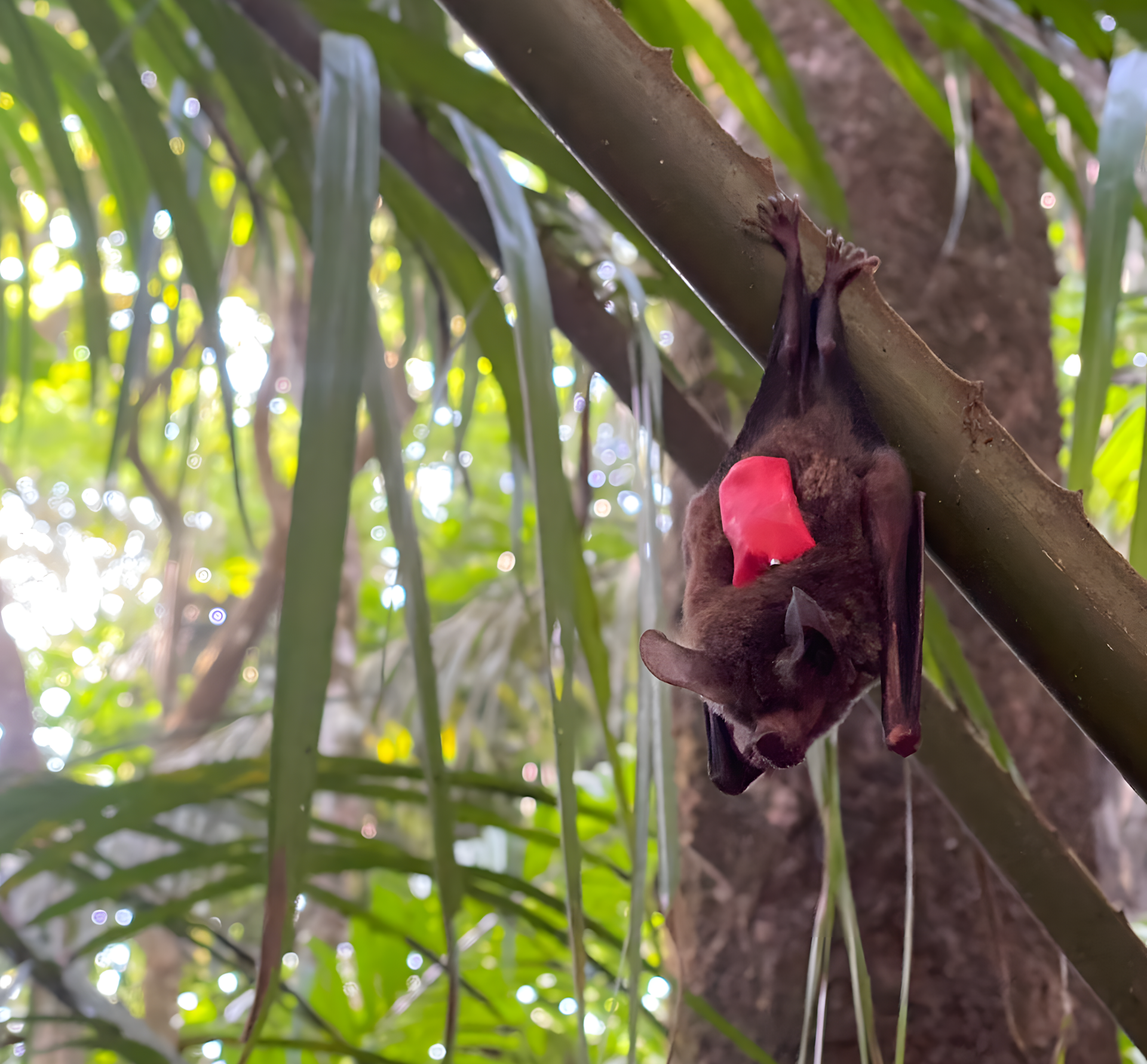HIV knows no borders, and the Trump administration’s new strategy leave Americans vulnerable – an HI
The America First Global Health Strategy aims to secure US interests but may instead undermine it by design.
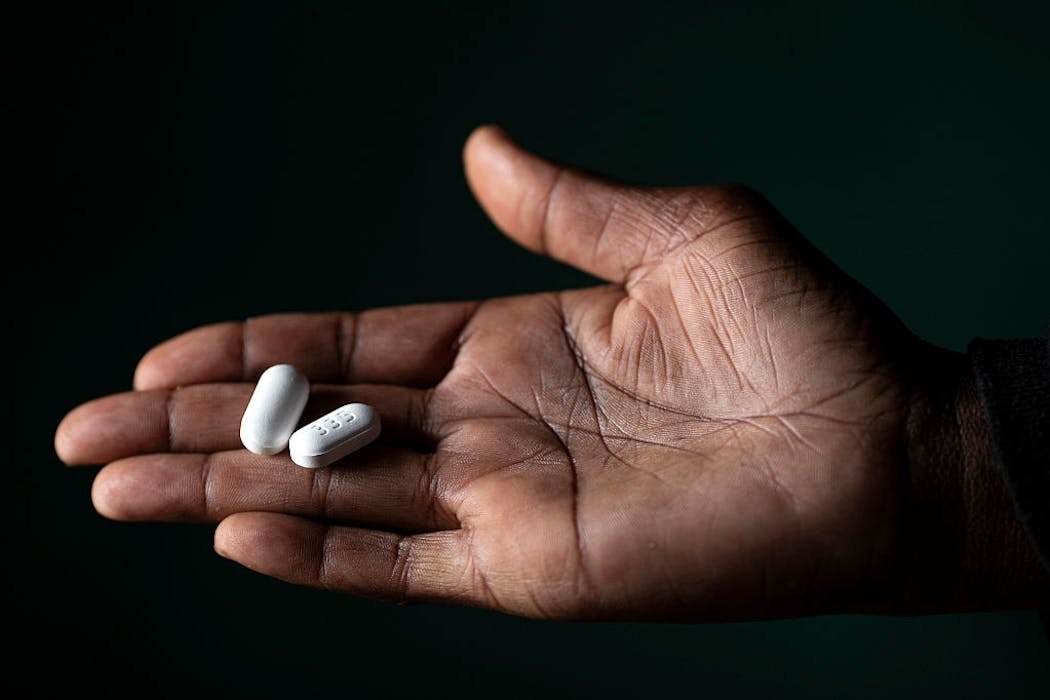
Protecting public health abroad benefits Americans.
In a globalized world, diseases and their social and economic impacts do not stay within national boundaries. Increased rates of untreated HIV in any part of the world increase the risk of transmission for U.S. citizens.
Changes made in the first year of President Donald Trump’s second term to address the global HIV epidemic, however, may not keep Americans safe.
In September 2025, the U.S. Department of State announced its America First Global Health Strategy, a plan that aims to make “America safer, stronger, and more prosperous” by encouraging other governments to take responsibility for their citizens’ health and to promote U.S. commercial and faith-based interests. It includes the commitment to purchase and distribute the breakthrough HIV preventive drug lenacapavir for up to 2 million people – principally pregnant and breastfeeding women – in 10 countries heavily affected by HIV.
However, the plan does not ensure the most vulnerable will be able to access HIV care. It comes on top of eliminating billions of dollars of U.S. financial support to global health programs. And it undermines one of the most effective foreign assistance programs in U.S. history, the U.S. President’s Emergency Plan for AIDS Relief, or PEPFAR.
I have spent four decades evaluating HIV programs and have studied barriers to HIV prevention and care in the U.S. and in other countries. The Trump administration’s strategy not only reverses decades of progress toward international targets to end AIDS by 2030, I believe it also puts Americans at risk.
Disrupting PEPFAR caused global harm
In 2024, the U.S. supplied over 70% of donor government funding to end the HIV epidemic globally. Much of this aid was through the President’s Emergency Plan for AIDS Relief, a suite of programs designed to expand access to prevention, testing and treatment.
Since President George Bush initiated the program in 2003, PEPFAR has saved an estimated 26 million lives. HIV deaths have declined by 70% since 2004, and new infections fell after the program’s inception. PEPFAR helped put the world on track to ending the HIV pandemic by promoting access to highly effective drugs, supporting community-led outreach and programs, and building health care infrastructure.
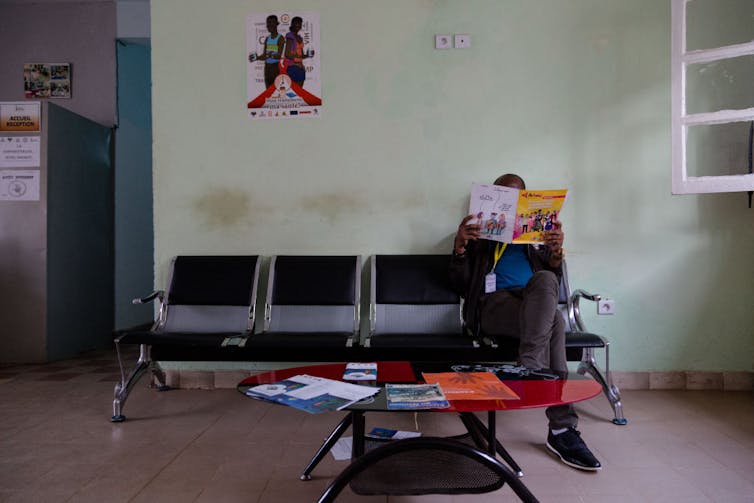
On Jan. 20, 2025, President Donald Trump signed an executive order that paused funding for all foreign aid programs, including PEPFAR. It shuttered PEPFAR-supported clinics and outreach programs, halted medical and supply shipments, and prompted mass layoffs of the global HIV workforce. It also dissolved USAID, which provided essential infrastructure for PEPFAR to do its work.
The Trump administration’s foreign aid pause disrupted access to HIV treatment for more than 20 million people worldwide and access to prevention for millions more. These actions are projected to cause 4.1 million additional deaths and 7.5 million new HIV infections by 2030.
The full extent of the damage will become increasingly clear with time.
Destabilizing HIV prevention and care
Legal pushback in the months following the Trump administration’s dismantling of USAID allowed limited parts of PEPFAR to restart. However, access to HIV medication was explicitly limited to only pregnant and breastfeeding women. This strategy excludes prevention and care to the majority of people who are vulnerable to HIV infection.
The Trump administration’s new global HIV prevention strategy prioritizes preventing mother-to-child HIV transmission. About 120,000 children under the age of 5 were newly infected with HIV in 2024, or around 9% of the 1.3 million new infections that year.
However, 55% of new infections worldwide occur among “key populations,” a catchall term coined by UNAIDS and WHO. These include sex workers, people who use injectable drugs, men who have sex with men, transgender people, prisoners, and the sex partners of these individuals. These groups are considered “key” because of their heightened vulnerability to HIV infection and because ending the HIV pandemic cannot be achieved without their access to prevention, testing and treatment.
Stigma and discrimination, human rights abuses, criminalization and underfinancing of programs specific to these people’s needs are significant barriers to their care.
Loss of peer-to-peer support
In countries with legal and social environments that discourage vulnerable people from seeking HIV services, trusted and knowledgeable peers can be a lifeline.
PEPFAR used to fund services designed and implemented by the peers of vulnerable people. People from vulnerable communities were directly involved in ensuring their peers had access to appropriate HIV services and remained in care. They also directly shaped their countries’ national HIV plans.
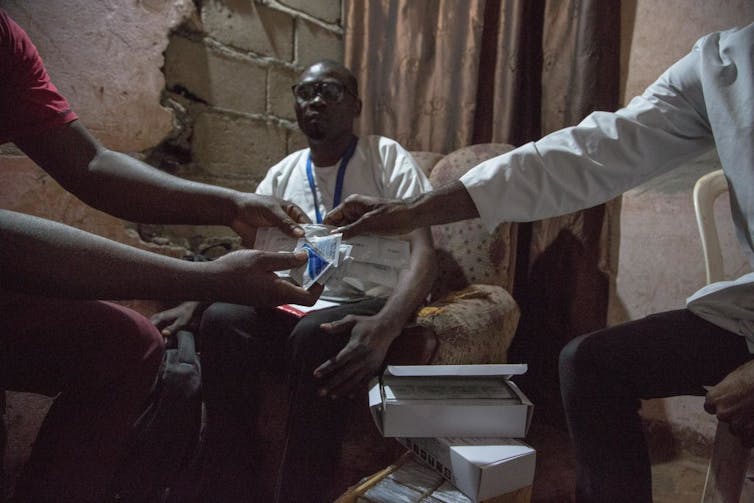
The Trump administration’s new strategy favors pregnant and breastfeeding women and cuts out other vulnerable communities. It proposes funding government health care workers in lieu of peers without ensuring these workers will be adequately equipped to provide unprejudiced care. The plan withdraws support for community-led, nongovernmental organizations that bridge gaps in care and offer sensitivity training to providers.
Many people who are vulnerable to or living with HIV view government-run medical care with profound distrust and apprehension. Some participants in my own research have told me they would rather die than seek care in a government-run facility. They recount dehumanizing experiences in these facilities, including undergoing invasive procedures without consent and being openly humiliated. Health care workers have also violated patient confidentiality by disclosing patients’ sexuality and HIV status to family members, friends, neighbors, landlords or employers.
Fear of repercussions – arrest, violence, loss of housing and employment, and blackmail – further heighten fear of health care settings. Research has shown that many people living with HIV from vulnerable populations report encountering these forms of discrimination and stigma when seeking health care. Even more report being hesitant to seek care.
Faith-based organizations
The strategy shifts funds to faith-based institutions, citing potential financial support from tithes and donations as well as greater reach through faith leaders. However, research has shown that faith-based and government health care institutions evoke fear of stigmatization, mistreatment, arrest and denial of services among many who are most at-risk for HIV.
Conservative evangelical groups such as Family Watch International – a designated hate group by the Southern Poverty Law Center – have authored some of the world’s most punitive anti-homosexuality laws in countries such as Uganda, where HIV remains inadequately controlled. They also advocate for the scientifically debunked practice of conversion therapy and are leading actors in global movements against LGBTQ+ human rights, comprehensive sexuality education and reproductive health services.
HIV requires a unique response
Effectively addressing HIV requires more than providing supplies or medical treatment. Although treatments to manage and prevent HIV infection are highly effective under ideal conditions, these are not the circumstances of many people living with and vulnerable to HIV. Treatment is lifelong and needs to be taken regularly. Additionally, the epidemic is often concentrated in networks of people who face societal discrimination, making care retention and engagement difficult.
The Trump administration’s new global health strategy requires community health care workers to consolidate their work across four distinct diseases: malaria, polio, tuberculosis and HIV. However, very different populations are vulnerable to these diseases, and each has unique social, psychological and medical concerns and needs.
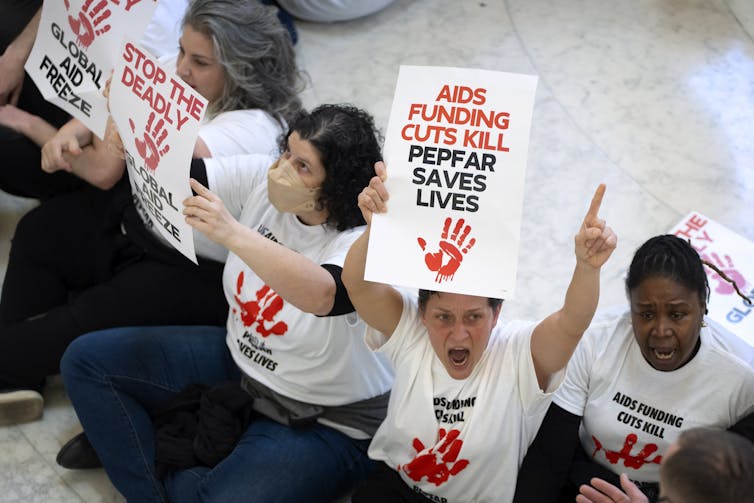
For example, malaria and polio primarily affect children under 5, but the former requires strategies to reduce the mosquito bites that transmit disease, while the latter requires childhood immunization. Meanwhile, HIV primarily affects adolescents and adults and requires interventions addressing sexual health and harm reduction.
Research and lessons learned over decades of global health work suggest that carefully tailoring prevention and care strategies to each vulnerable population and addressing their unique social, behavioral, structural and medical needs improves their effectiveness.
A healthy world makes a safe and prosperous US
The 55 countries that most recently benefited from PEPFAR may seem far from U.S. soil. But in an interconnected world, their epidemic is an American epidemic.
The Trump administration’s reversal of decades of progress on ending the HIV pandemic – and weakening U.S. leadership and humanitarian effort in the fight against HIV – has already led to thousands of deaths. Every new HIV infection will incur global economic and societal costs by draining labor capacity in high-burden countries while increasing health care and caregiving costs. This global insecurity and economic instability has precedents in the initial HIV crisis and the COVID-19 pandemic.
Ensuring people living with HIV worldwide receive appropriate treatment and care advances U.S. national security, diplomatic and economic interests. Ensuring that citizens in other countries enjoy good health permits their economies to thrive and America’s in turn. I believe a healthy world is a more prosperous, peaceful and stable world, to everyone’s benefit.
Robin Lin Miller has previously received research and evaluation funding from the U.S. Department of State, Centers for Disease Control and Prevention, National Institute of Mental Health, National Institute of Drug Abuse, the Eunice Kennedy Shriver National Institute of Child Health and Development, American Foundation for AIDS Research, Michigan Department of Community Health, Michigan AIDS Fund, AIDS Foundation of Chicago, and the Health Services Improvement Fund.
Read These Next
Drug company ads are easy to blame for misleading patients and raising costs, but research shows the
Officials and policymakers say direct-to-consumer drug advertising encourages patients to seek treatments…
Tiny recording backpacks reveal bats’ surprising hunting strategy
By listening in on their nightly hunts, scientists discovered that small, fringe-lipped bats are unexpectedly…
How the Seattle Seahawks’ sale will score a touchdown for charity 8 years after Paul Allen’s death
Selling a sports team is much more complicated than selling assets found in a typical estate, such as…



